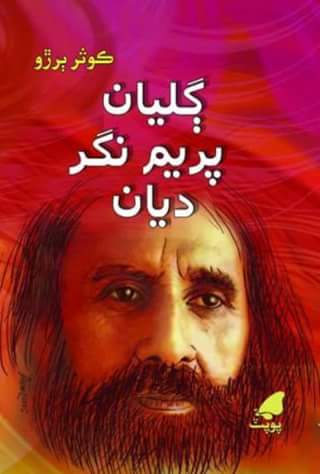Sohrab Fakir : Fahimeh Fifi Haroon
A Manghalhaar Fakir, Sohrab started singing with his father Hamal Fakir at Dargah (Shrine) of Sufi Khair Mohammad Hisbani when he was about ten years old. Subsequently, he left the dargah to study under the tutelage of Ustad Kheta Khan of the Patiala gharana (school). Sohrab’s career began when he joined a Nachu group of singers who perform in drag. In time, he moved on to the music of the shrines, and is today the foremost exponent of the Soung or choral style in Sindh.
For Sohrab, music has a much deeper mystical significance which is why the Soung tradition suited him ideally. The Soung (literally meaning togetherness) is a form of choral singing which has emerged from the Sufi tradition of Sindh. Clad in vibrant saffron robes, they sing and dance to the frenzied rhythm of a mysticism drenched in the soulful lyricism of the great sufi poets of the Indian subcontinent, creating an experience that you are unlikely to forget. Clutching is one hand the Yaktaro, a one-string instrument that has become their hallmark, they whirl around vigorously, singing of the joys and sorrows of love, which in the Sufi tradition can mean a union with the beloved literally, or on a more transcendental leve, denote God.
Though Sohrab Fakir is known to have had many liaisons in his younger days. His one grand passion today is music. “Now, which I fall in love, I fall in love with sur (tunefulness). I have become totally besotted with the voice of a much older women these days. It is her sur that has attracted me to her. Because you can discover God in sur. Allah speaks in sur.” Whether you consider music a religious experience or not, Sohrab Fakir’s soulful voice will surely take you closer to the margin of Mustic rapture.
